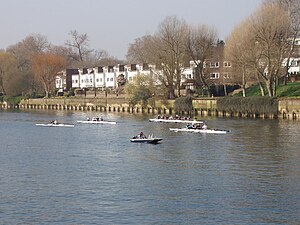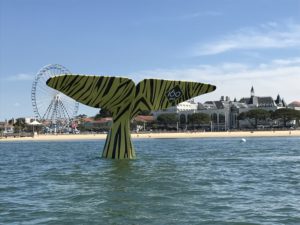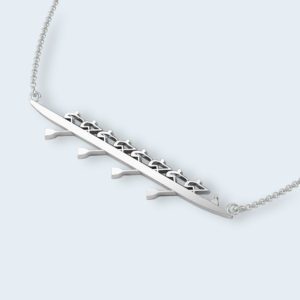Emma sent us a great question:
“How to maximise your training sessions on the water to become very good really quickly?”

Dear Emma, learning quick is not so easy. Most of our rowing exercises need time. But there are some general rules to improve a quick learning ability:
Principles of fast learning
- Find someone with an edge. Get somebody who rows better than you.
- Don’t sweat the small stuff.
- Chop up your big project.
- Don’t be afraid to make mistakes.
- Ask for help.
- Reward yourself.
These principles apply to all sports, not only rowers.
There are three principles of fast learning to getting good really quickly
- Find a coach with a track record of teaching really good crews. If you want to see how good a coach they are look at race results, look at video of good rowing/sculling and find a great coach. The technique and skill and body position similarity between athletes is a good way to check if they are technically skilled. Also look at the oars – do they move in perfect parallels or do they converge/diverge through the stroke. Perfect parallels is what you want. Lastly, the athletes – if they have the air of a swan where it looks like they are doing simple movements while still working hard to move the boat they are probably more skilled. Novices tend to throw their bodies around and flop their heads or shoulders when they get tired.
- Practice frequently for short periods of time. When you are beginning to learn something new you tire easily – both in body and mind. So plan 45 minute training sessions on the water as many days a week as you can.
- Train with people who are better than you. Learning from other rowers or scullers who can already do the movement and have race and training experience and get into the same boat as them. The things you’ll learn by feeling how they move and watching them is worth more than lots of words.
Conclusion: principles of fast learning
In terms of monitoring your tuition – keep a training diary and record what you learn – read it back to yourself before the next session so you remember.
And (of course I would say this) get access to a Rowperfect with a computer so you can see your force curve and compare yourself to experienced athletes’ curves – you will see exactly what shape curve your body produces when you move and your coach can guide you towards adjusting your body and the muscles you use so that you can make more power (joules) and a longer stroke length. This is helpful when you go back on the water because you can move in exactly the same way in the boat, handling the oar handle is the only difference. Plus inside your coach can get close up and help you by adjusting your body position which is harder to do on the water.
What do you suggest Emma does?
This text was posted by Rebecca and edited by Tom








This Post Has One Comment
Greetings. To get good quickly? On the erg work a 1:1 in:out (pendulum) rhythm, at 26+ strokes per minute, 2 breaths per stroke(out at catch and release) from the outset.
Incorporate posture(curved back), 11:1 upper body swing, Legs and arms finishing together, layback at the catch. Don’t do any “drills”. Viisit Youtube Rhecon sculling.
Use split- time to measure performance. Do daily training for at least 30 minutes , with hard/soft intervals if you intend to do 2k racing later. Sweat!.
Take this rhythm and style on the water, preferably in a single scull. . Buy a cap-mounted mirror! .Gradually increase the work as your confidence improves.
Ensure your lifestyle and diet support this exercise.(The triangle of life)
Have fun.